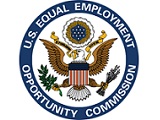New EEOC Guidelines Limit Using Criminal Records In Hiring Decisions
Post Views 5
For example a pharmaceuticals company would be very reluctant to hire a person who has been convicted of drug related offenses, while obviously no bank would be comfortable hiring a convicted robber.
However, an employer has to be doubly careful is using background checks to employ or disqualify a worker. If he hires somebody and that person gets involved in unlawful activity, the employer could be accused of negligence in hiring. On the other hand if a person is disqualified, the employer could still face legal action for discrimination.
Commonly, both California and federal laws permit employers to disqualify candidates, based on their criminal background, if they have a legitimate reason for doing so. However, new guidelines issued by the Equal Employment Opportunity Commission (EEOC), make employers meticulously evaluate the candidate’s history, before disqualifying him and drastically limit using criminal records in their hiring decisions.
Joseph Dutra, of Kimmie Candy Company in Reno, Nevada, said that he is happy give somebody with a criminal history a second chance, if the crime wasn’t too serious, and certainly not violent or sexual. “We don’t have a blanket policy here, but we need to have people with good morals, who are compatible with the public that we bring in.“ He said that groups of schoolchildren often tour the factory. “We’re trying to make this a fun little place where people can come and feel safe.”
The EEOC’s guidance says that you must perform an “individualized assessment” before reaching to the conclusion that the job applicant does not merit the job. Blanket disqualifications of people who have criminal convictions are unlawful. This has been done, EEOC say, because it has been found that the people who bear the brunt of disqualification are African-Americans and Hispanics. It is seen that employers, tend to disqualify all applicants with criminal backgrounds. This they feel could be in contravention of laws, that prohibit screening of individuals based on their race or ethnicity.
To avoid possible liability, the EEOC advises that employers take into account several factors while assessing applicants’ criminal records. This should include the seriousness of the crime; the time that has elapsed since the crime, whether the applicant has found employment since his conviction and how was his conduct therein. All these factors should be weighed before deciding that the applicant cannot be employed.
The guidelines also ask the employers to seek the applicant’s version of his conviction and why they feel that they deserve to be employed and not to be disqualified.
The EEOC guidelines forbid discriminatory treatment of applicants based on their race or country of origin. The same yardstick should apply to all. If certain criterion finds an applicant of Caucasian descent unfitting for a post, it should also be unfitting for an Asian applicant. Identical conviction records should have the same consequences of every applicant, irrespective of their color, race or country of origin.
The EEOC’s says that arrest records cannot be confused with conviction records. Arrests, by themselves, are not evidence of criminal conduct. The new guideline states, that “arrest record[s] standing alone may not be used to deny an employment opportunity.” There have been many cases of arrest records that have not resulted in convictions.
The EEOC recommends that it would be best, if employers did not ask applicants to mention previous criminal activity on their job applications. However, there are many reasonable reasons why the employers are justified in asking potential employees about any past criminal record they may be having. It shows their level of honesty and also automatically, expels candidates who intentionally hide their earlier misdemeanors, putting question marks on their credibility.
However, EEOC’s individualized analysis standard say that the request for disclosing of past illegal conduct, should also mention clearly that disclosed criminal conviction “will not necessarily be a bar to employment.” Also the application form must contain writing informing job applicants not to disclose information pertaining to arrests or detentions that did not result in criminal convictions.
Even though EEOC’s regulations are not legally binding, but courts view them as a credible authority, whose opinions can sway court decisions. Hence employers would be well advised to consistently apply EEOC’s policies and practices.
Mr. Dutra said, “When you have a small company like ours the management has to hire people that they’re going to work with on a daily basis, and everybody here wants to have a feeling of safety. It’s just a worry that I would prefer not to have.” Nor is he interested in hiring serial offenders, even if the crime is unrelated to the job. “If somebody has done it once, people make mistakes in life, I understand that, but if you find a person who’s been convicted three or four times for the same thing, would I hire him here? No, because they would not have proven that they are rehabilitated. The government has good intentions, probably, to try and get criminals or ex-criminals into the work force. But in this kind of economy, where we’re trying to figure out how to be successful and grow, small businesses should not have the burden of having somebody sue you because he has a criminal record and didn’t fit in our company.”
New EEOC Guidelines Limit Using Criminal Records In Hiring Decisions by Harrison Barnes


 Want to Attract Top Talent to Your Company? Have a Purpose
Want to Attract Top Talent to Your Company? Have a Purpose  Make Hiring in 2016 Better
Make Hiring in 2016 Better  5 Skills You Should Be Looking for in Employees
5 Skills You Should Be Looking for in Employees  5 Ways You Can Hire and Keep the Best Employees for Your Company
5 Ways You Can Hire and Keep the Best Employees for Your Company  Adjectives to Look for in Quality Candidates
Adjectives to Look for in Quality Candidates  Generation Y is Changing Corporate America
Generation Y is Changing Corporate America  Simplify the Hiring Process
Simplify the Hiring Process